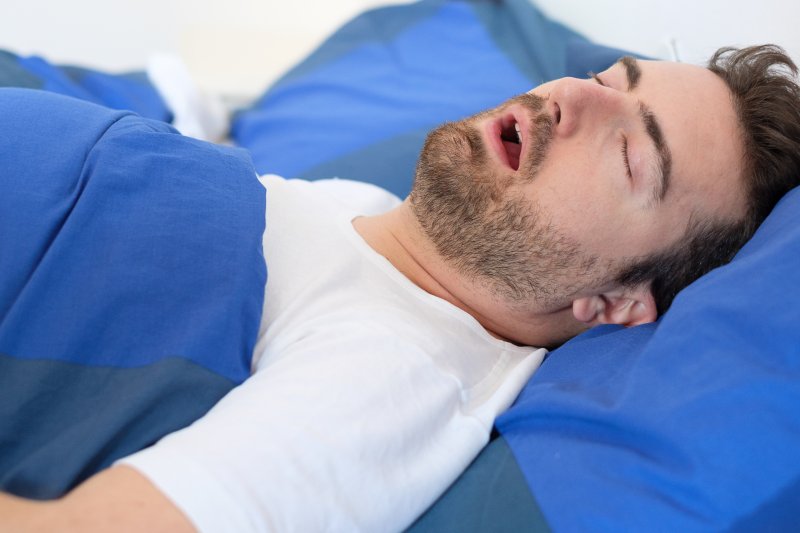Heart Disease and 2 Other Ways Sleep Apnea Puts Your Health at Risk
February 19, 2020

Your partner has told you that you’ve been snoring loudly and gasping for air during the night – both possible signs of sleep apnea in Horseshoe Bay. You haven’t noticed any other issues though; does that mean that the noise from your snoring is all you’ll have to worry about? Don’t be so sure! It may be a while before all the side effects of your sleep-disordered breathing appear, but when they do your health and the quality of your everyday life will very likely be in danger. Below are 3 possible health issues you might eventually suffer due to sleep apnea; read on to learn why they need to be avoided at all costs!
1. Heart Disease
The lack of oxygen from whenever you stop breathing makes it harder for the brain to control the flow of blood, and the stress on your body will lead to raised blood pressure levels. Both factors bode poorly for your cardiovascular health. The American Heart Association warns of a very strong correlation between sleep apnea and heart attacks as well as strokes; the more severe the sleep disorder is and the longer it goes untreated, the higher your risk of such heart conditions will be.
2. Sudden Weight Gain
Did you know that your appetite may change depending on how much quality sleep you get? Your body relies on the hormones leptin and ghrelin to tell it when to start and stop eating; leptin suppresses appetite while ghrelin makes you feel hungry. When sleep apnea disrupts your slumber, the body will start producing more ghrelin and less leptin, and that causes you to eat more than you normally would; you may even start craving sweets in particular. The end result? A sudden increase in weight that could make your sleep apnea symptoms even worse (due to fatty deposits in the neck that can collapse and block the airway at night).
3. Car Accidents
It probably goes without saying that poor sleep will make you feel extremely tired during the day. This can make it harder to function at your best throughout the day, but it’s especially a problem when you’re on the road. Because of the risk of falling asleep at the wheel, you’ll be five times more likely to get in an automobile accident than someone who’s sleeping normally.
What to Do About Sleep Apnea
As frightening as all of the above issues might sound, they can typically be avoided simply by having your sleep apnea treated. One common solution is CPAP therapy, which keeps the airway open with a steady stream of air. CPAP machines are highly effective, but because they tend to make a lot of noise, not all patients can tolerate them. In those cases, a convenient, comfortable oral appliance is recommended instead; these devices keep the airway free of obstruction by holding your lower jaw forward.
At the first sign of trouble, you should talk to an expert in treating sleep apnea about being diagnosed for the disorder. Waiting too long could be dangerous; seek out care immediately and take control of your sleep again!
About the Author
Dr. Gregory R. Sopel has been working in the oral healthcare field for nearly 40 years; he and his team at Horseshoe Bay Dental are extremely passionate about addressing each patient’s individual wants and needs. He can offer simple, reliable oral appliances to patients with sleep-disordered breathing. If you think you may have sleep apnea, you can schedule an appointment at Horseshoe Bay Dental to discuss your next steps by visiting our website or calling (830) 598-5474.
No Comments
No comments yet.
RSS feed for comments on this post.
Sorry, the comment form is closed at this time.